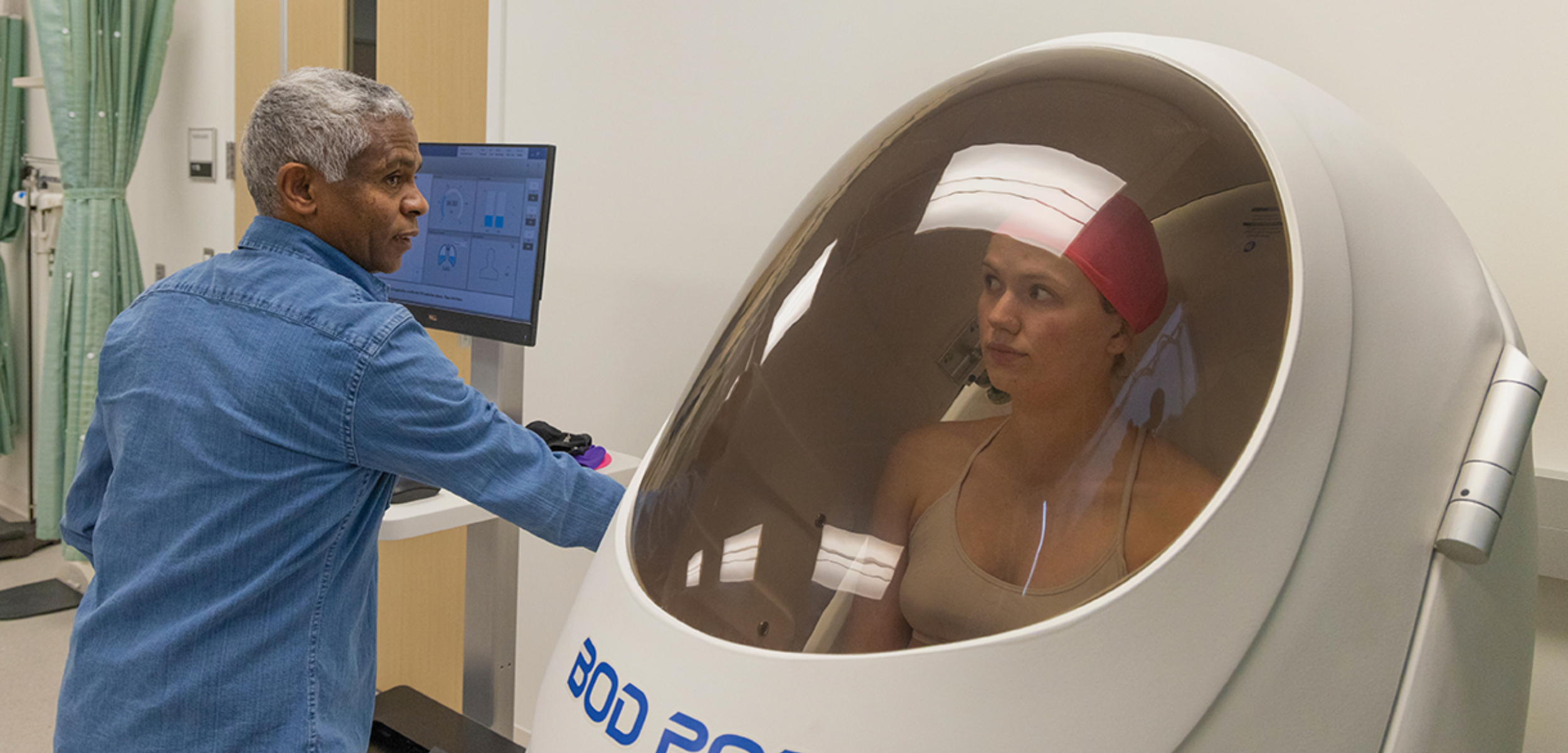
CWU Nutrition professors David Gee and Tafere Belay have discovered a way to add value to their students’ research experiences by incorporating data from the National Health and Nutrition Examination Survey (NHANES).
The federal database contains tens of thousands of nutrition-related research surveys, but many of the studies have not been analyzed at a granular level. That’s where Gee and Belay have stepped in to give their students new opportunities.
“NHANES helps me provide my students with instruction about how to analyze data to fit their specific areas of interest,” Gee said. “We are able to whittle the numbers down to a certain group—just men, for example—and get a more reliable estimate about certain conditions like LDL cholesterol levels or high blood pressure.”
Three of Gee’s students are currently immersed in an NHANES-related study about weight cycling by measuring glucose and insulin levels in the blood to determine insulin resistance. Another study is examining the relationship between dietary factors and the prevalence of multiple risk factors (such as diabetes and hypertension) associated with severe COVID-19 outcomes.
“The main benefit for our students is they can do impactful studies and work with a high-quality database without having to take time and resources to collect the data,” Gee said.
Similarly, Belay is tapping NHANES to complete vital research about micronutrient deficiencies involving iodine, iron, vitamin D and others. Moreover, he also evaluates demographic and health survey data sets in low-income countries to assess maternal and child undernutrition.
In one study, he and his students are examining the effects of iodine deficiencies in pregnant women, which is common in underdeveloped countries like his native Ethiopia.
“Global nutrition is our focus,” Belay said. “We are also studying nutrient deficiencies in the U.S., but these issues are more common in low-income countries. Research like this allows us to have an impact beyond our own population.”
In addition to studying micronutrient deficiencies, Belay and his students are examining whether alfatoxins—a grain contaminant found in corn, peanuts, and other grains—may be contributing to liver cancer.
After learning to take advantage of NHANES in recent years, Belay is eternally grateful to Gee for training him on this career-altering database.
“I have seen a lot of interest from my students, and when they want to do a specific kind of research, they can do it,” Belay said. “Using NHANES has allowed me to be there more for my students.”






comments powered by Disqus